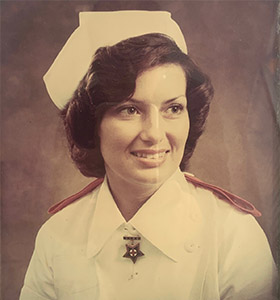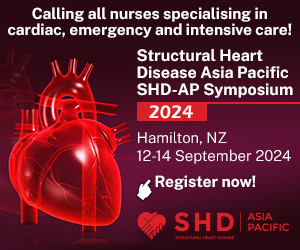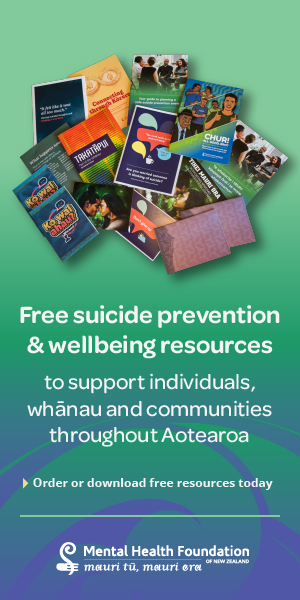

My first involvement in nursing activism came in 1991, when the Employment Contracts Act (ECA) came in. All multi-site collective bargaining ceased and health workers had to negotiate employment contracts with each separate employer.
My husband encouraged me to get on the bargaining team at the private surgical hospital where I worked. Although I was very reluctant, I eventually did. It was a steep learning curve, and at times a difficult experience, but we got there.
After being part of several bargaining teams, I saw a position for an organiser come up at NZNO, in 1995. I decided to apply as I wanted the interview experience but was not wanting a full-time job. To my surprise, I was offered the job and then had to explain that I really did not want it.
I spoke to one of the organisers and was given the weekend to think about it. I decided to take the job, which proved to be an excellent decision.
The ECA era was very difficult, with many employees losing working conditions. I had worked for an excellent employer, but did not realise how great they were until I left and saw how staff were treated by other employers, particularly in aged care.
Under the ECA, each DHB negotiated its own agreement, and it took a long time for the DHBs to come together under one collective agreement again. This process started with DHBs grouping in regions to negotiate with employees, before finally moving back to one agreement, being negotiated currently.
After two years as an organiser, I became a professional nursing adviser for NZNO. I have enjoyed working with colleges and sections, and on professional issues at worksites.
More recently, I have worked supporting nurses going through Nursing Council competence investigations.
It is alarming to me that in the three years I have done this particular job, three new graduates have gone though this process. Each of them accrued $30,000 in debt and spent three years of their life to become a nurse, and now only one is still nursing.
I note the Nursing Council is undertaking a review of undergraduate education. Perhaps this review should consider that it is too much to expect new graduates to be undertaking postgraduate study – as they are required to do under some nurse-entry-to-practice (NetP) programmes – while also coping with the stresses of shift work and embedding their knowledge in practice, in an understaffed health system.
Following the 1988 release of the Cartwright Inquiry into the treatment of women with cervical cancer, the Health and Disability Commissioner was enacted in 1994 and associated regulations in 1996. Where patients or relatives are not satisfied with care, they can complain. This changed the health landscape.
The Health Practitioner’s Competence Assurance Act came into force in 2004, covering all health practitioners. where previously there had been separate acts for doctors, nurses and other health professionals.
Significant advances in surgery and treatment of diseases has led to shorter hospitals stays and more intense work for nurses.

Over my time, there have also been significant advances in surgery and treatment of disease, with many more complex conditions now able to be treated in a less invasive way. This results in much shorter lengths of stay for patients, with most patients, while hospitalised, requiring increasingly complex care. There has also been a significant intensification of housing in some DHB catchment areas, placing additional pressures on hospital beds.
However staffing levels have never kept pace with the pace of change and technology, mainly due to cost, and nurses are the biggest cost.
NZNO has been working on safe staffing, in different forms, ever since I started, and this issue is part of current collective agreement negotiations with DHBs. A shortage of nurses exacerbates safe staffing problems, and with closed borders under the COVID-19 pandemic restrictions, no internationally qualified nurses are coming into New Zealand. This makes our shortage worse.
However, it is not just New Zealand that has a shortage – it is an international problem. Due to existing shortages, the ageing of the nursing workforce, and the growing COVID-19 effect, the International Council of Nurses estimates up to 13 million nurses will be needed to fill the global shortage in the future.
The global nursing shortage was a well-recognised issue before the pandemic. In 2020, the first State of the World’s Nursing report, published by the World Health Organization, revealed the global nursing workforce was 27.9 million and estimated there was a global shortfall of 5.9 million nurses. Most of the shortfall was concentrated in low and lower-middle income countries, in Africa, South-East Asia and the eastern Mediterranean. Around 17 per cent of nurses globally are expected to retire in the next 10 years, and 4.7 million additional nurses will need to be educated and employed just to maintain current numbers. In total, 10.6 million additional nurses will be needed by 2030.
In this country, the pandemic has made times tough for the hospitality and travel industries. I understand there are now more people previously employed in these industries entering nursing programmes.
The cost of one year of NZNO fees is less than one hour of a good medico-legal lawyer.
NZNO now has more than 50,000 members, and employs six medico-legal lawyers. The cost of one year of NZNO fees is less than one hour of a good medico-legal lawyer. I hear some members are not happy with NZNO, but I would recommend you belong for the indemnity insurance alone. When I started nursing, I did not know anyone referred to the Nursing Council, but things are different now. You do not have to be a bad nurse to be referred and with short staffing, the risks are much higher.
I would also say get involved and change what you don’t like – you have the power, and you just need to use it.



